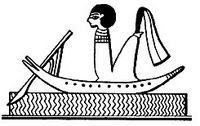One of our greatest contemporary spiritual writers
"Thomas Moore is one of the greatest spiritual writers of our time. His many books on the soul have both defined and illuminated our understanding of this mysterious and powerful lifeforce that lives within all of us."
Rapsas shares "3 Keen Insights from Thomas Moore" based on Moore's latest book, Soul Therapy: The Art and Craft of Caring Conversations:
1. It starts with the soul — your soul
2. Your job and your lifework are not the same thing
3. You are a therapist
Read the post as Rapsas quotes Moore and shares his own commentary about how we may care for our world.

















































